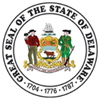Safety Consultant I (#MDAD01)
| ||||||||||||||||||||||||||||||||||||||||||
| CLASS: MDAD01 |
EST:
7/28/2024 |
REV:
|
REPLACES JOB TITLE:
MDAZ08 |
||||||
| CLASS: MDAD02 |
EST:
7/28/2024 |
REV:
|
REPLACES JOB TITLE:
MDAZ08 |
||||||
| CLASS: MDAD03 |
EST:
7/28/2024 |
REV:
|
REPLACES JOB TITLE:
MDAZ08 |
||||||

 Notify Me when a Job Opens for the above position(s)
Notify Me when a Job Opens for the above position(s)